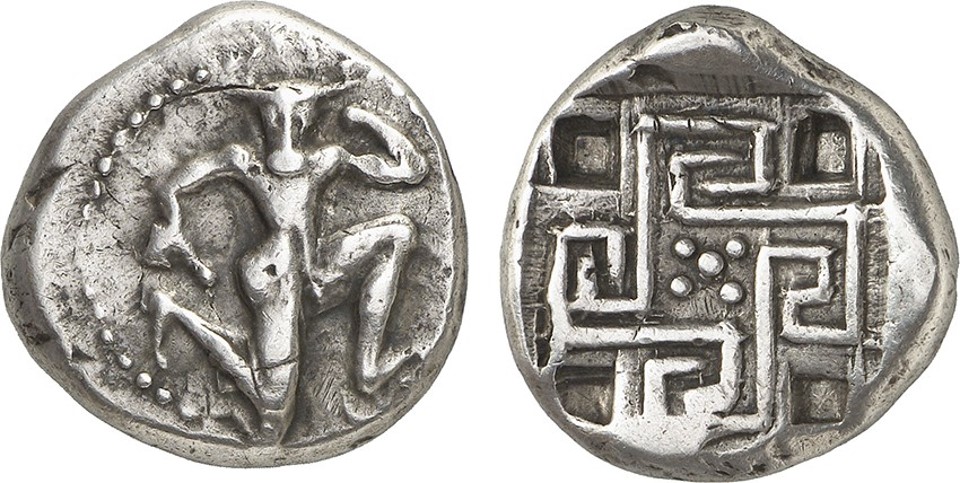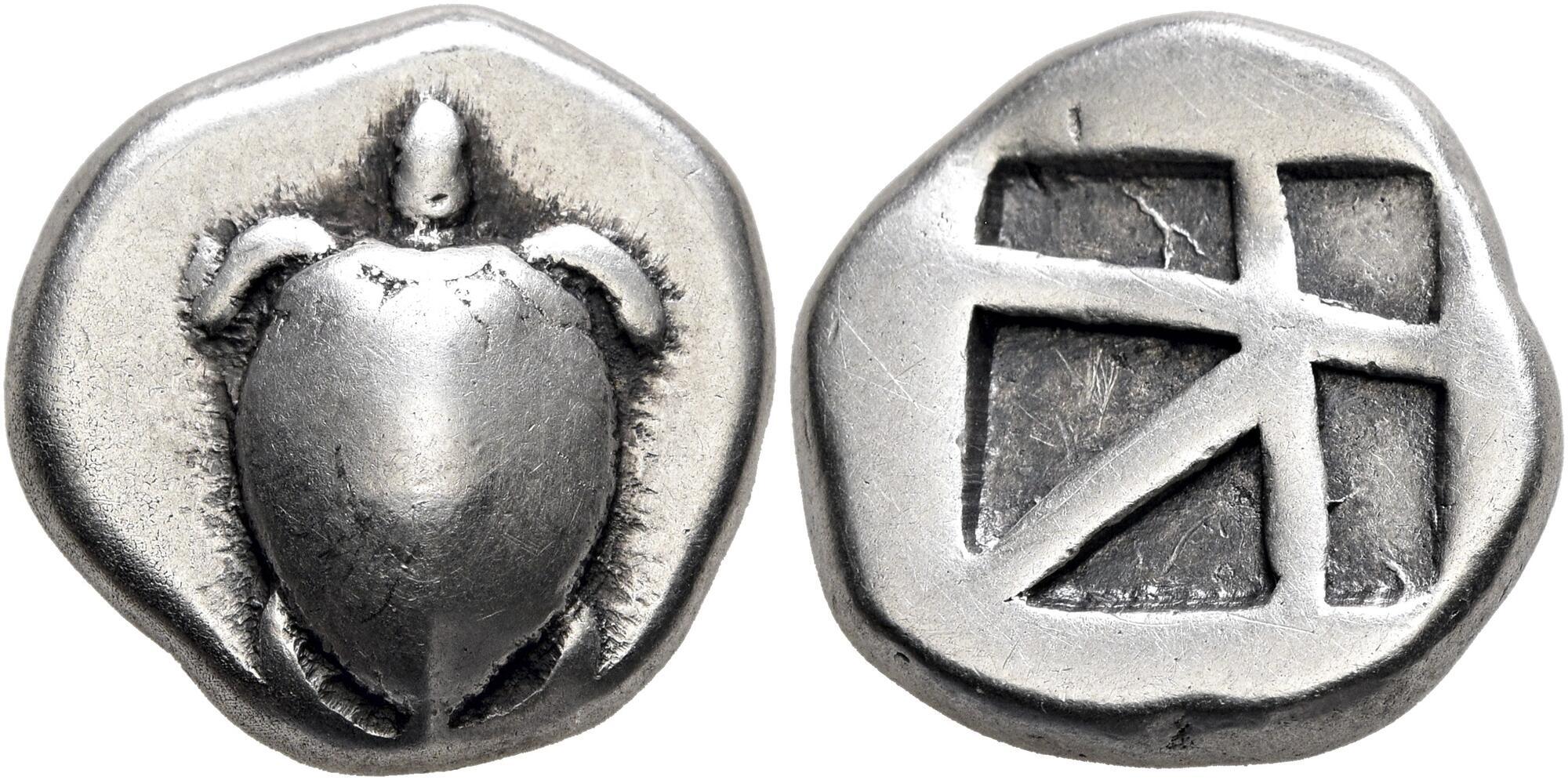2031 - Cnossus (stater Minotaur/labyrinth) over Aegina (turtle/incuse square) (Gorny & Mosch, 224, Oct. 2014, 220A): Difference between revisions
From SILVER
No edit summary |
|
(No difference)
| |
Revision as of 07:03, 27 October 2023
425 BCE - 360 BCE
Images
Overstriking coin

Cnossus_Gorny_&_Mosch,_224,_13_Oct._2014,_220A.jpg [1]
Location/history
| Sale(s)Sale(s) ᵖ: | Gorny & Mosch, 224, 13 Oct. 2014, 220A | |
Overstriking coin
Description
| ObverseInscription or printing placed on the obverse.: | The Minotaur running right, head facing, holding stone. Border of dots. | ReverseInscription or printing placed on the reverse.: | Labyrinth in the form of a swastika, pellets in the center and four squares in the corners. |
Mint and issuing power
| MintIdentifies the place of manufacture or issue of a numismatic object.: | Cnossus | Ancient regionAncient region. | Crete | Modern countryModern country: Crete | AuthorityIdentifies the issuing power. The authority can be "pretended" when the name or the portrait of X is on the coin but he/she was not the issuing power. It can also be "uncertain" when there is no mention of X on the coin but he/she was the issuing power according to the historical sources: |
Chronology
| FromIdentifies the initial date in a range assigned in a numismatic context. 425 BCE toIdentifies the final date in a range assigned in a numismatic context.. 360 BCE | Classical 480-323 BC |
Physical description
| MetalThe physical material (usually metal) from which an object is made.: Silver |
WeightWeight of the numismatic object (in grams). in grams: 11.9311.93 g <br />11,930 mg <br /> | DenominationTerm indicating the value of a numismatic object. Examples: tetradrachm, chalkous, denarius.: didrachm |
|
| StandardStandard.: Aeginetic | |||
References
| Coin referenceReference of the Coin: | Coin series referenceReference to coin series study: | Svoronos 18901Svoronos 1890, n° 1, pl. IV, 23, Le Rider 19662Le Rider 1966, p. 99, n° 2, pl. XXIV, 25, Carrier 20173Carrier 2017, n° 1-59. | |
| Coin series web referenceCoin series web references: | |||
Overstruck type
Description
| ObverseInscription or printing placed on the obverse.: | Turtle | ReverseInscription or printing placed on the reverse.: | Incuse square. |
Mint and issuing power
| MintIdentifies the place of manufacture or issue of a numismatic object. ᵖ: | Aegina | Ancient regionAncient region. ᵖ | Attica | Modern countryModern country: Greece | AuthorityIdentifies the authority in whose name (explicitly or implicitly) a numismatic object was issued. ᵖ: |
Chronology
| FromIdentifies the initial date in a range assigned in a numismatic context. 450 BCE toIdentifies the final date in a range assigned in a numismatic context.. 360 BCE | Classical 480-323 BC |
Physical description
| DenominationTerm indicating the value of a numismatic object. Examples: tetradrachm, chalkous, denarius. ᵖ: | stater |
References
| Coin type referenceReference to coin series study ᵖ: |
Additional data
| Frequency of overstrikesFrequency of overstrikes: | rare and concentrated | Level of confidenceLevel of confidence of the identification: | strong |
| RemarksRemarks: | "Überprägungsspuren" | ||
References
- ^ Svoronos, Ioannes N. (1890), Numismatique de Crète ancienne, accompagnée de l'histoire, la géographie et la mythologie de l'île. Première partie, description des monnaies, 2 vol., Macon, Impr. Protat frères.
- ^ Le Rider, Georges (1966), Monnaies crétoises du Ve au Ier siècle av. J.-C., Paris, Geuthner, 345 p. and 42 pl.
- ^ Carrier, Caroline (2017), Cnossos de l'époque classique à l'époque impériale (Ve s. avant J.-C.-Ier s. après J.-C.). Etude de numismatique et d'histoire, Unpublished doctoral dissertation, Paris-Sorbonne University.
